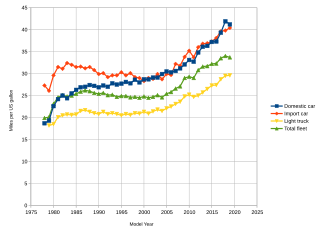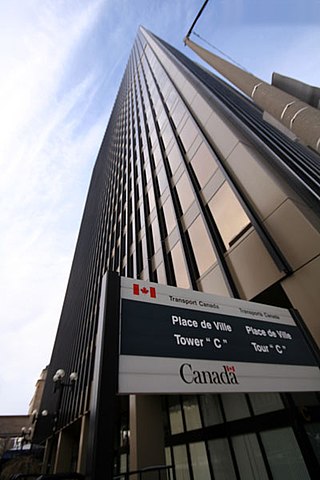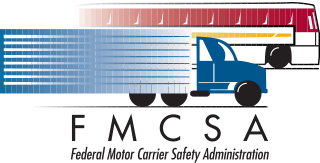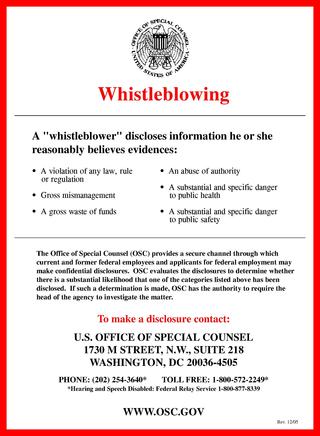Related Research Articles

The False Claims Act (FCA) is an American federal law that imposes liability on persons and companies who defraud governmental programs. It is the federal government's primary litigation tool in combating fraud against the government. The law includes a qui tam provision that allows people who are not affiliated with the government, called "relators" under the law, to file actions on behalf of the government. This is informally called "whistleblowing", especially when the relator is employed by the organization accused in the suit. Persons filing actions under the Act stand to receive a portion of any recovered damages.
A whistleblower is a person, often an employee, who reveals information about activity within a private or public organization that is deemed illegal, immoral, illicit, unsafe or fraudulent. Whistleblowers can use a variety of internal or external channels to communicate information or allegations. Over 83% of whistleblowers report internally to a supervisor, human resources, compliance, or a neutral third party within the company, hoping that the company will address and correct the issues. A whistleblower can also bring allegations to light by communicating with external entities, such as the media, government, or law enforcement. Whistleblowing can occur in either the private sector or the public sector.

The U.S. Securities and Exchange Commission (SEC) is an independent agency of the United States federal government, created in the aftermath of the Wall Street Crash of 1929. The primary purpose of the SEC is to enforce the law against market manipulation.

American Automobile Association is a federation of motor clubs throughout North America. AAA is a privately held not-for-profit national member association and service organization with over 60 million members in the United States and Canada. AAA provides services to its members, including roadside assistance and others. Its national headquarters are in Heathrow, Florida.

The Corporate Average Fuel Economy (CAFE) standards are regulations in the United States, first enacted by the United States Congress in 1975, after the 1973–74 Arab Oil Embargo, to improve the average fuel economy of cars and light trucks produced for sale in the United States. More recently, efficiency standards were developed and implemented for heavy-duty pickup trucks and commercial medium-duty and heavy-duty vehicles.

A department of motor vehicles (DMV) is a government agency that administers motor vehicle registration and driver licensing. In countries with federal states such as in North America, these agencies are generally administered by subnational governments, while in unitary states such as many of those in Europe, DMVs are organized nationally by the central government.
The National Highway Traffic Safety Administration is an agency of the U.S. federal government, part of the Department of Transportation, focused on transportation safety in the United States.

Transport Canada is the department within the Government of Canada responsible for developing regulations, policies and services of road, rail, marine and air transportation in Canada. It is part of the Transportation, Infrastructure and Communities (TIC) portfolio. The current Minister of Transport is Pablo Rodriguez. Transport Canada is headquartered in Ottawa, Ontario.
In common law, a writ of qui tam is a writ through which private individuals who assist a prosecution can receive for themselves all or part of the damages or financial penalties recovered by the government as a result of the prosecution. Its name is an abbreviation of the Latin phrase qui tam pro domino rege quam pro se ipso in hac parte sequitur, meaning "[he] who sues in this matter for the king as well as for himself."

The National Traffic and Motor Vehicle Safety Act was enacted in the United States in 1966 to empower the federal government to set and administer new safety standards for motor vehicles and road traffic safety. The Act was the first mandatory federal safety standards for motor vehicles. The Act created the National Highway Safety Bureau. The Act was one of a number of initiatives by the government in response to increasing number of cars and associated fatalities and injuries on the road following a period when the number of people killed on the road had increased 6-fold and the number of vehicles was up 11-fold since 1925. The reduction of the rate of death attributable to motor-vehicle crashes in the United States represents the successful public health response to a great technologic advance of the 20th century—the motorization of America.

The Transportation Recall Enhancement, Accountability and Documentation or TREAD Act is a United States federal law enacted in the fall of 2000. This law intends to increase consumer safety through mandates assigned to the National Highway Traffic Safety Administration (NHTSA). It was drafted in response to fatalities related to Ford Explorers fitted with Firestone tires, and was influenced by automobile and tire manufacturers as well as consumer safety advocates. After congressional hearings were held in September 2000, Congress in only an 18-hour span passed the TREAD Act in October 2000. The Act was signed into law by President Clinton on November 1, 2000, and has been incorporated into the existing National Traffic and Motor Vehicle Safety Act of 1966, codified at 49 U.S.C. §§ 30101–30170.
Lemon laws are laws that provide a remedy for purchasers of cars and other consumer goods in order to compensate for products that repeatedly fail to meet standards of quality and performance. Although many types of products can be defective, the term "lemon" is mostly used to describe defective motor vehicles, such as cars, trucks, and motorcycles.

In the United States, speed limits are set by each state or territory. States have also allowed counties and municipalities to enact typically lower limits. Highway speed limits can range from an urban low of 25 mph (40 km/h) to a rural high of 85 mph (137 km/h). Speed limits are typically posted in increments of five miles per hour (8 km/h). Some states have lower limits for trucks, some also have night and/or minimum speed limits.

The Federal Motor Carrier Safety Administration (FMCSA) is an agency in the United States Department of Transportation that regulates the trucking industry in the United States. The primary mission of the FMCSA is to reduce crashes, injuries, and fatalities involving large trucks and buses.

The Surface Transportation Assistance Act of 1982 was a comprehensive transportation funding and policy act of the United States Federal Government, 96 Stat. 2097. The legislation was championed by the Reagan administration to address concerns about the surface transportation infrastructure. The Act contained Title V, known as the Highway Revenue Act of 1982, which added five cents to the per gallon gas tax, of which four cents was dedicated to restore interstate highways and bridges, and one cent for public transit. The Act also set a goal of 10 percent for participation of disadvantaged business enterprises in federal-aid projects.
The National Whistleblower Center (NWC) is a nonprofit, nonpartisan, tax exempt, educational and advocacy organization based in Washington, D.C. It was founded in 1988 by the lawyers Kohn, Kohn & Colapinto, LLP. As of March 2019, John Kostyack is the executive director. Since its founding, the center has worked on whistleblower cases relating to environmental protection, nuclear safety, government and corporate accountability, and wildlife crime.

A whistleblower is a person who exposes any kind of information or activity that is deemed illegal, unethical, or not correct within an organization that is either private or public. The Whistleblower Protection Act was made into federal law in the United States in 1989.

The U.S. Securities and Exchange Commission (SEC) whistleblower program went into effect on July 21, 2010, when the President signed into law the Dodd-Frank Wall Street Reform and Consumer Protection Act. The same law also established a whistleblower incentive program at the Commodity Futures Trading Commission to incentivize reporting of violations of the Commodity Exchange Act, which is run by former senior SEC enforcement attorney Christopher C. Ehrman. The SEC Whistleblower Program rewards people who submit tips related to violations of the federal securities laws. The program offers robust employment protections, monetary awards and the ability to report anonymously. SEC whistleblowers are entitled to awards ranging from 10 to 30 percent of the monetary sanctions collected, which are paid from a replenishing Investor Protection Fund. Since 2011, whistleblower tips have enabled the SEC to recover over $4.8 billion in financial penalties from wrongdoers. The SEC has awarded more than $1 billion to whistleblowers. The largest SEC whistleblower awards to date are $279 million, $114 million, $110 million, and $50 million.

The General Motors ignition switch recalls refers to February 6, 2014 when General Motors recalled about 800,000 of its small cars due to faulty ignition switches, which could shut off the engine while the vehicle was in motion and thereby prevent the airbags from inflating. The company continued to recall more of its cars over the next several months, resulting in nearly 30 million cars recalled worldwide and paid compensation for 124 deaths. The fault had been known to GM for at least a decade prior to the recall being declared. As part of a Deferred Prosecution Agreement, GM agreed to forfeit $900 million to the United States.

The Commodity Futures Trading Commission's Whistleblower Program was created with the 2010 passage of the Dodd-Frank Act. The program rewards individuals who report possible Commodity Exchange Act (CEA) violations. The program also extends anti-retaliation protections for whistleblowers who file claims.
References
- 1 2 3 4 "49 U.S.C. 30172 - Whistleblower incentives and protections". www.gpo.gov. Retrieved 2017-11-15.
- ↑ Lamprey, Wayne. "Auto whistle-blower law will help keep public safe". Detroit Free Press . Retrieved 2017-11-15.
- ↑ "Moving Ahead for Progress in the 21st Century Act (MAP-21) | Whistleblower Protection Program". www.whistleblowers.gov. Retrieved 2017-11-15.
- ↑ Yampolsky, Ari (2016-12-06). "Celebrating Motor Vehicle Safety Whistleblower Act's first anniversary". The Hill . Retrieved 2017-11-15.
- ↑ "Motor Vehicle Safety Whistleblower Act" . Retrieved 2018-09-27.